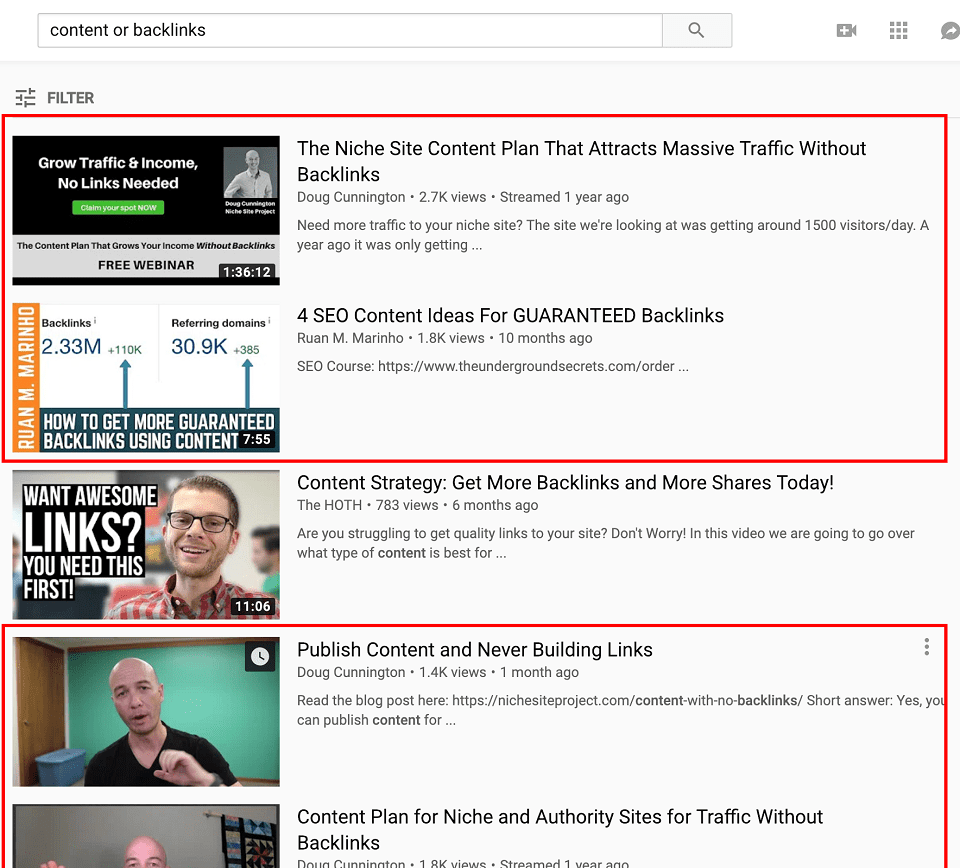Search engines have become the portal of choice for consumers when browsing the Internet. Google alone processes more than 70,000 searches per second.
Search engines and the organic traffic they drive are the largest source of website traffic across the board. Clearly, being able to rank your web pages is paramount.
This is why so many business executives prioritize search engine optimization (SEO) as a point of focus in their online marketing strategies. The primary goal of SEO is to earn relevant rankings for as many web pages and in turn, attract visitors that become paying customers.
But, How Do You “Do” SEO?
SEO is already a complex beast. There’s a great deal of conflicting information about it on the Internet. Not suggesting most of them are wrong, merely that a lot of it is incomplete.
You’ll get different answers whenever you ask people what it takes to rank web pages on the SERPs (search engine results pages). Occasionally, it’s some weak attempt to trick search engine bots (a form of AI). Other times, it just makes no real sense.
Experts in the field regularly debate whether content (e.g. white papers or blog posts) or backlinks (i.e. links pointing to your site) should be the focus. They presume that you can simply work on one area and disregard the other.
Some have foregone the practice of link building entirely in favor of content marketing. Others have stopped creating original content to focus on acquiring backlinks.
So which one’s the solution for ranking a website?
The Secret Lies in Plain Sight
The truth is that content and backlinks are equally as crucial to your SEO success.
Think about it. Why should one be more critical than the other?
Backlinks connect the World Wide Web and a type of AI called crawlers (a.k.a. spiders), which follow links to discover web pages.
Content serves your visitors and provides the search engines with information that they can serve up whenever a query is searched. Only the most satisfactory content will be able to remain on page one of search results.
Furthermore, content and backlinks aren’t the only factors search engines use to evaluate and rank your pages. They utilize over 200 ranking factors. So it’s highly unlikely that they’ll ignore all of them. That is… unless it is irrelevant to your industry/niche.
Indeed, backlinks and content are prime search engine ranking factors that work together. Unfortunately, too many people try to convince others that they only need one of the two. Just do a quick YouTube search for “content or backlinks” and you’ll discover similar results like the following.

Undoubtedly, you’ve noticed that there are far too many gurus trying to sell the ‘Kool-Aid’ – “all you need is great content”.
Yes, you must have content. It should be ongoing, regardless of where your site is with respect to SEO execution. But in practice, it’s never been the case that content alone is all you need.
Like content, link building is absolutely necessity. Unlike content, however, it often eventually goes on autopilot.
This is because you’ll begin to naturally attract backlinks after you’ve built sufficient overall website authority. But you have to build links prior to achieving that outcome, period.
Advancements in AI technology have come a long way. However, to suggest that one doesn’t need to build links is only, at best, half true.
Relation Between Valuable Content, Backlinks, And SEO
You need text-based content to target keywords you want to rank for. What these presumed SEO experts claim, which is doing away with backlink strategies altogether, is untrue.
Content helps you cut through the noise to penetrate highly competitive niches. It also facilitates audience growth and can attract links to your site naturally. Links are a signal to search engines that your site is important.
Remember, your goal is to rank for as many relevant terms with regards to your products or services as possible. Without links, this will never happen.
A new website will never make it to page one without having a backlink profile. The exception to this is when a domain name that already has considerable backlink metrics is purchased. You’ll find them on sites like GoDaddy Auctions or Flippa.
Off-page is the toughest part of SEO. So we understand the lure of “you don’t need backlinks”. In reality, the opposite is most certainly the truth.
TopThree Search Engine Ranking Factors
The top three ranking factors according to Google (not in any specific order) are as follows.
- Backlinks
- Content
- AI or ‘RankBrain’
The notion that you need content over backlinks just doesn’t hold up unless you’re paying for traffic. Even if your strategy is to create social media profiles and publish content, you’re still building links indirectly.
The web address on your profiles and any URL you share from your domain are backlinks. They’re actively built links that point to your website.
Are All Links Valuable?
There are two types of links. These are ‘nofollow’ and ‘follow’ backlinks, which are HTML attributes used to instruct search engines whether or not to pass link equity.
In other words, the ‘nofollow’ does not influence the receiving site or link target’s ranking. ‘Follow’ will transfer link equity, while ‘nofollow’ is a link that has no direct ranking influence.
However, all links have some measure of value. This inlcudes both ‘nofollow’, where link equity isn’t passed, or ‘follow’ where it is.
Here’s an example.
A ‘nofollow’ link from a website like Forbes will refer visitors to your site for years due to their massive audience. Thus, it’s a valuable backlink. Plus referral traffic can positively influence rankings. That’s why links that also send traffic hold the most value.
The kind of links you pursue will depend on your intentions. Ideally, you should go after websites that can send you referral traffic even if those links are ‘nofollow’. Focus on ‘dofollow’ links whenever you’re reaching out to smaller sites.
The key to effective link building is to guide your activities with real business objectives. Soon as you start doing that, your mindset switches from simply obtaining links to earning them, and as a by-product, increasing brand awareness.
When You Need To Stop Building Links
As previously noted, you won’t have to manually build backlinks forever. You only need a few links at the start. Quantity will depend on the quality of link prospects, industry, and overall competitive landscape. Once you build noticeable momentum with your SEO, you’ll naturally know you can let them build themselves moving forward.
Reliable Metrics For Link Building
PA (Page Authority) is a metric developed by Moz to estimate how well a web page would performance on the SERPs. It’s the most reliable PR (PageRank) replacement. PageRank is Google metric that is no longer updated for the public, and is no longer useful for SEO analyses.
DA (Domain Authority) is another useful metric created by the same organization. Unlike PA, it estimates the ranking power of a domain or website as compared to all other domains on the web.
Here is an easy step-by-step way of finding link prospects and gauging competitiveness using these metrics.
You can follow these steps as you create and publish new content or do it for your entire keyword list in advance. Either works.
- Do your keyword research and compile all term targets in a spreadsheet (i.e. Excel or Google Sheets).
- Download the Moz toolbar (only available for Google Chrome).
- Search for your keyword target(s).
- Analyze the DA and PA of top ranking pages on the SERPs.
- Determine a good average PA and DA to pursue.
- Earn/build links with your average PA and DA objectives in mind.
No Longer a Secret
Backlinks and content are both necessary. No sound SEO strategy can do without them, so don’t let the naysayers fool you.
All three major ranking factors need each other.
- You will not attract links without useful content.
- Search engines won’t perceive your site as valuable without a backlink profile.
- AI needs to look at content, links, and 200+ other ranking factors to rank your web pages.
Finally, remember that your website is an integral part of your business and often the first thing a prospect sees. So, ensure that other important things like user experience (UX) and design are addressed as well to make the most of those visitors once they do arrive on your website.
Disclaimer: The views and opinions stated in this post are that of the author, and Return On Now may or may not agree with any or all of the commentary.
Gabriel Nwatarali
Latest posts by Gabriel Nwatarali (see all)
- The #SEO Secret to Ranking Web Pages That Nobody Tells You - April 2, 2019





